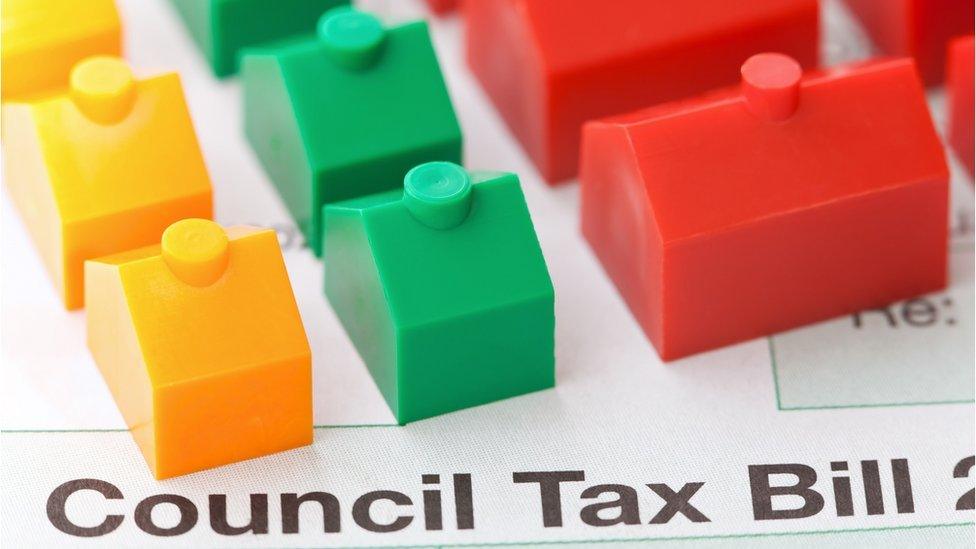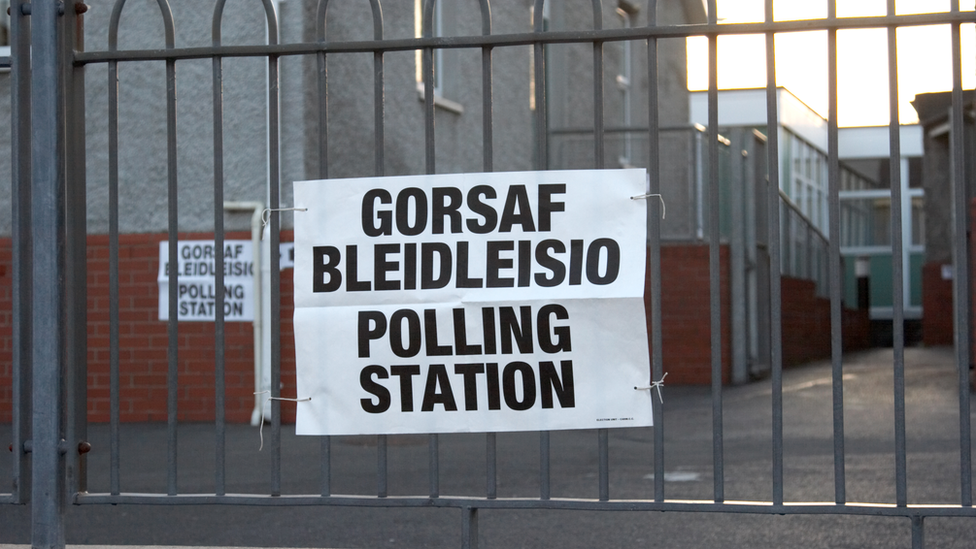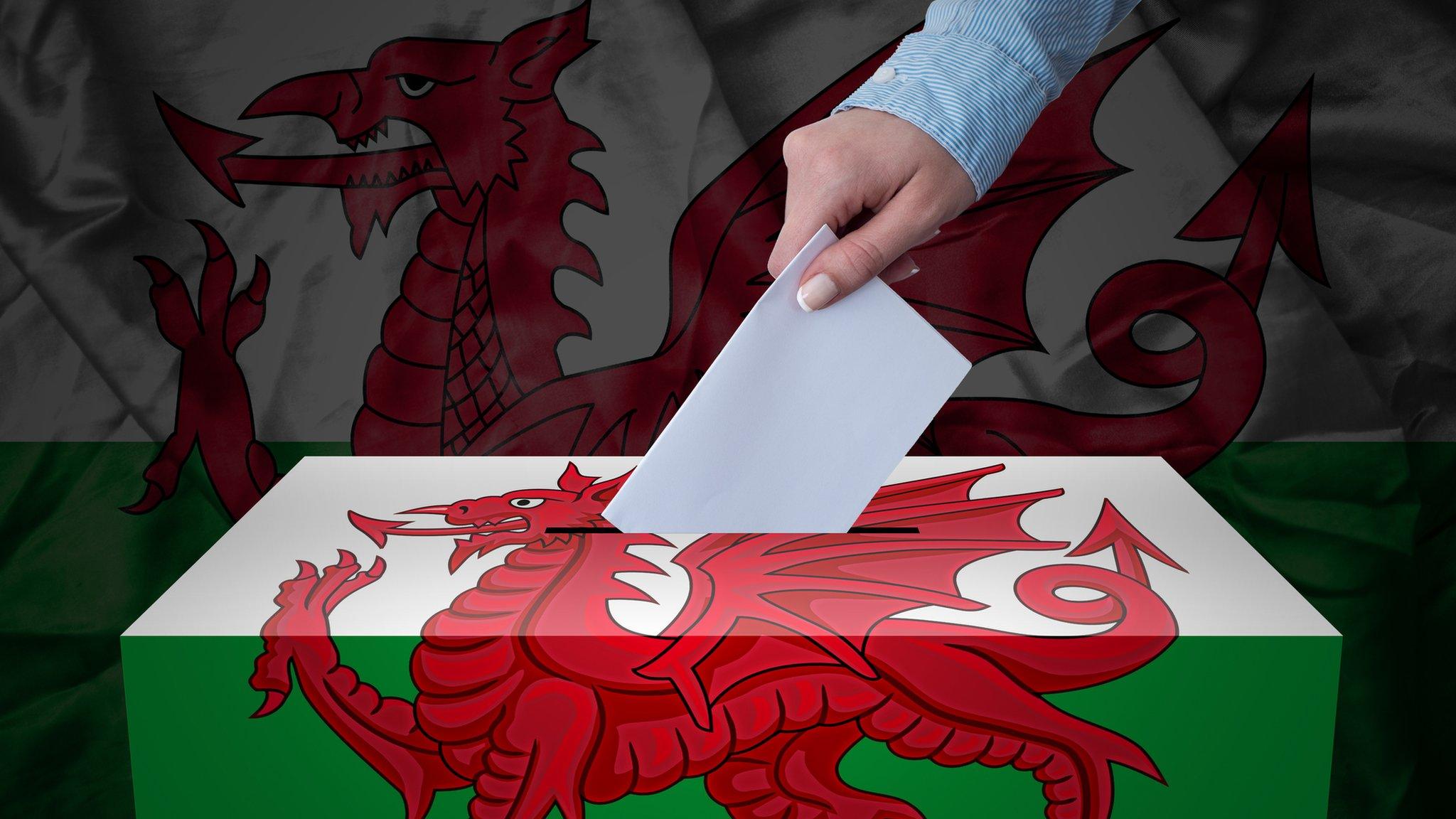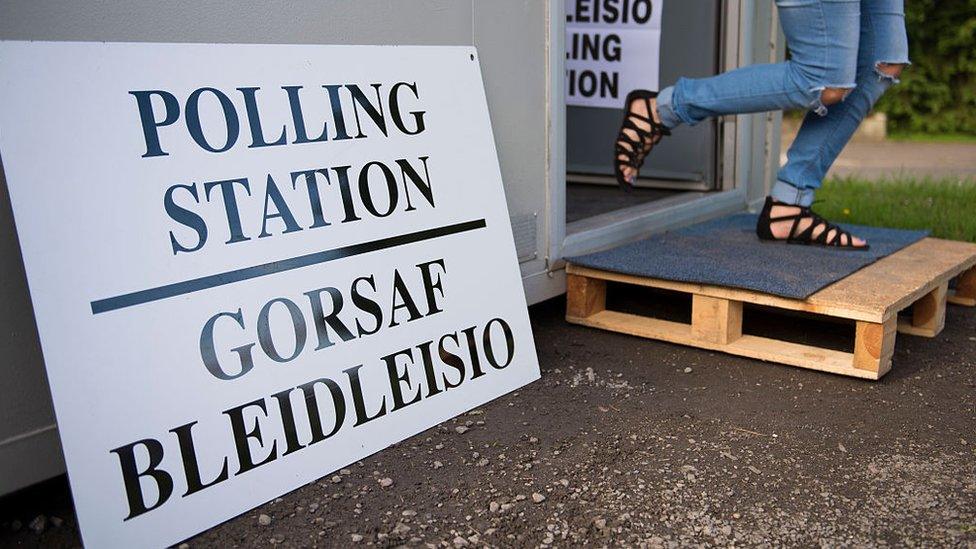Local elections: Post-polling day funding squeeze warning
- Published

A wide range of services are provided by local authorities across Wales
Council budgets could still be squeezed after next week's elections, despite more money from the Welsh government.
Experts have laid out the state of the finances that will confront the councillors elected on 5 May.
The Cardiff University report says "despite a growing budget, spending pressures are still likely to exceed councils' revenue" in the coming years.
Most of that pressure will come from the growing cost of delivering social care.
There was a 9.4% increase in Welsh government funding for the 22 local councils this year - the biggest since devolution.
In contrast, at the last local elections in 2017 funding was at its "nadir" after years of cuts.
However, funding will slow down in the next two years as costs go up.
Even if councils topped up their budgets with 4% increases in council tax, they would still need savings to balance the books.
Council tax rises this year were at their lowest level since 2012, "but further increases will likely be required in the medium term" the report warns.
Holding down pay "might not always be possible, let alone desirable", according to the university's Wales Fiscal Analysis.
More staff are needed to work on pandemic recovery and the Welsh government has committed to pay rises for teachers and social carers.

Households in Wales could change their council tax bands in the next five years
The next five-year council term could also see upheaval in the way council tax is gathered.
For the first time since 2003, there is a proposal to revalue homes to work out how much people should pay.
The Welsh government says it wants the tax, which accounts for more than a fifth of council funding, to be more fair.
Over the last decade, Welsh councils increased taxes quicker than those in England and Scotland.
This has increased pressure on household budgets in a "broadly regressive manner", meaning the least well-off have to spend proportionally more.

POSTCODE SEARCH: Is there an election in my area?
WHAT'S HAPPENING IN WALES: A really simple guide
ELECTIONS ACROSS THE UK: Find out more

- Published25 March 2022

- Published27 April 2022

- Published21 March 2022

- Published5 May 2021
